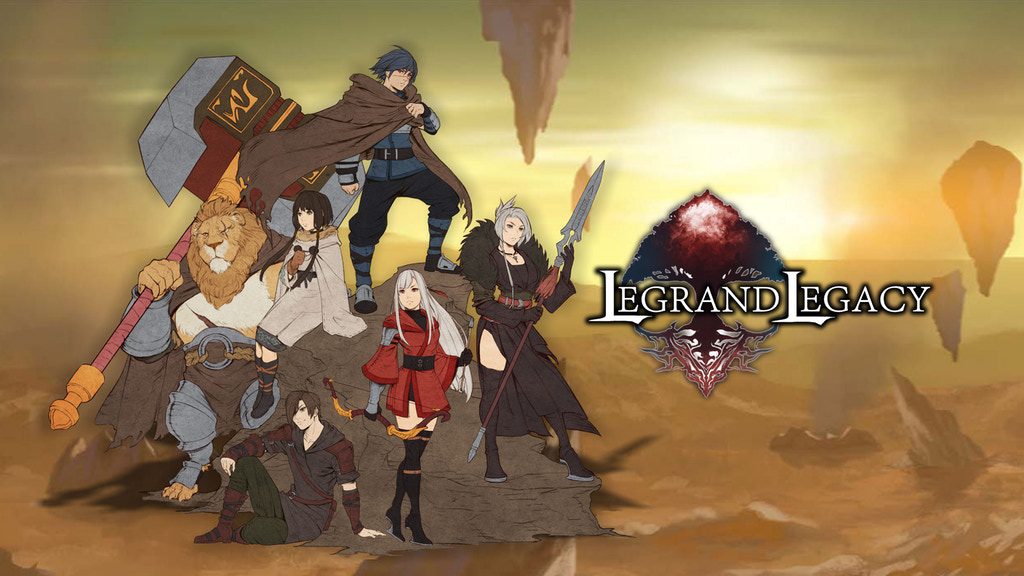Title: Legrand Legacy
Platform: PC
Genre: RPG
Developer: SEMISOFT
Publisher: Another Indie, Mayflower Entertainment [KR]
Release Date: January 24, 2018
I like a good RPG every now and then. And sometimes more often. And Legrand Legacy fits the bill, in its own way.
The game is, it should be noted, a massive throwback. A genre-specific throwback to be more precise. It’s meant to emulate the Japanese RPG’s of the late 90’s/early 2000’s in broad strokes. I can safely say that it’s successful in that endeavor.
That said, I’m not quite certain it’s the best of those games in sum, but that’s really for the individual to judge. There are definitely people who are nuts for it, and others who don’t have the patience for its retro touches.
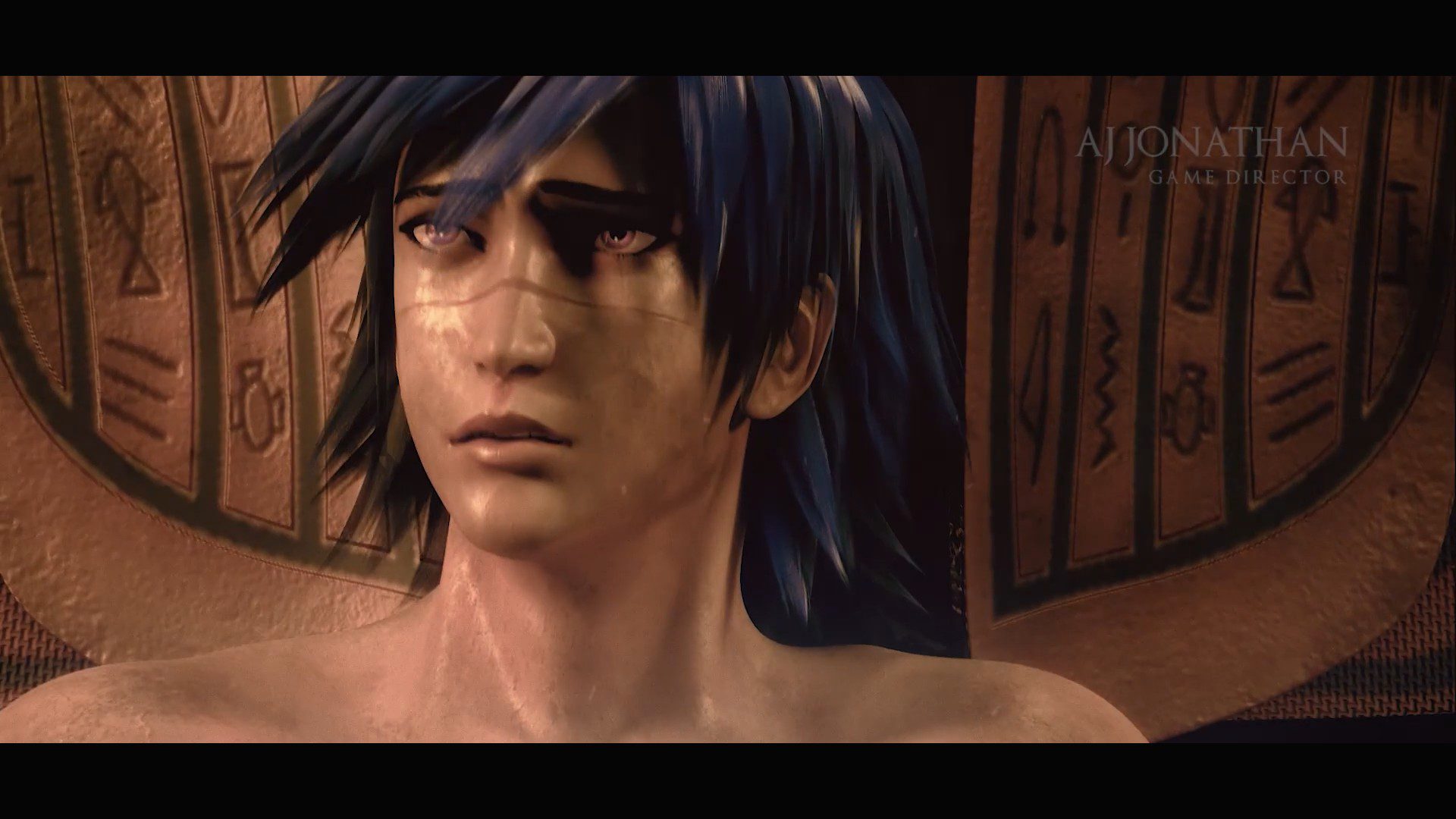
Story
The story is, itself, a throwback. A throwback to a time where every hero had amnesia and a superpowerful secret side. When silver-haired waifus showed up for no reason, acted selfish, and still somehow wound up following the main character around. Where more often than not, games had battles that you had to lose, but they weren’t scripted events, so you had to flail around like an idiot against brutally impossible-to-defeat opponents just for them to one shot you and make the story progress.
The main character is most certainly not an important person with amnesia, no sir. Basically, what I’m trying to say is, you need to be willing to put up with some genre cliches. A lot of Steam users who leave negative reviews based on the story don’t seem to get that it’s ridiculously predictable by design. So, make of it what you will.
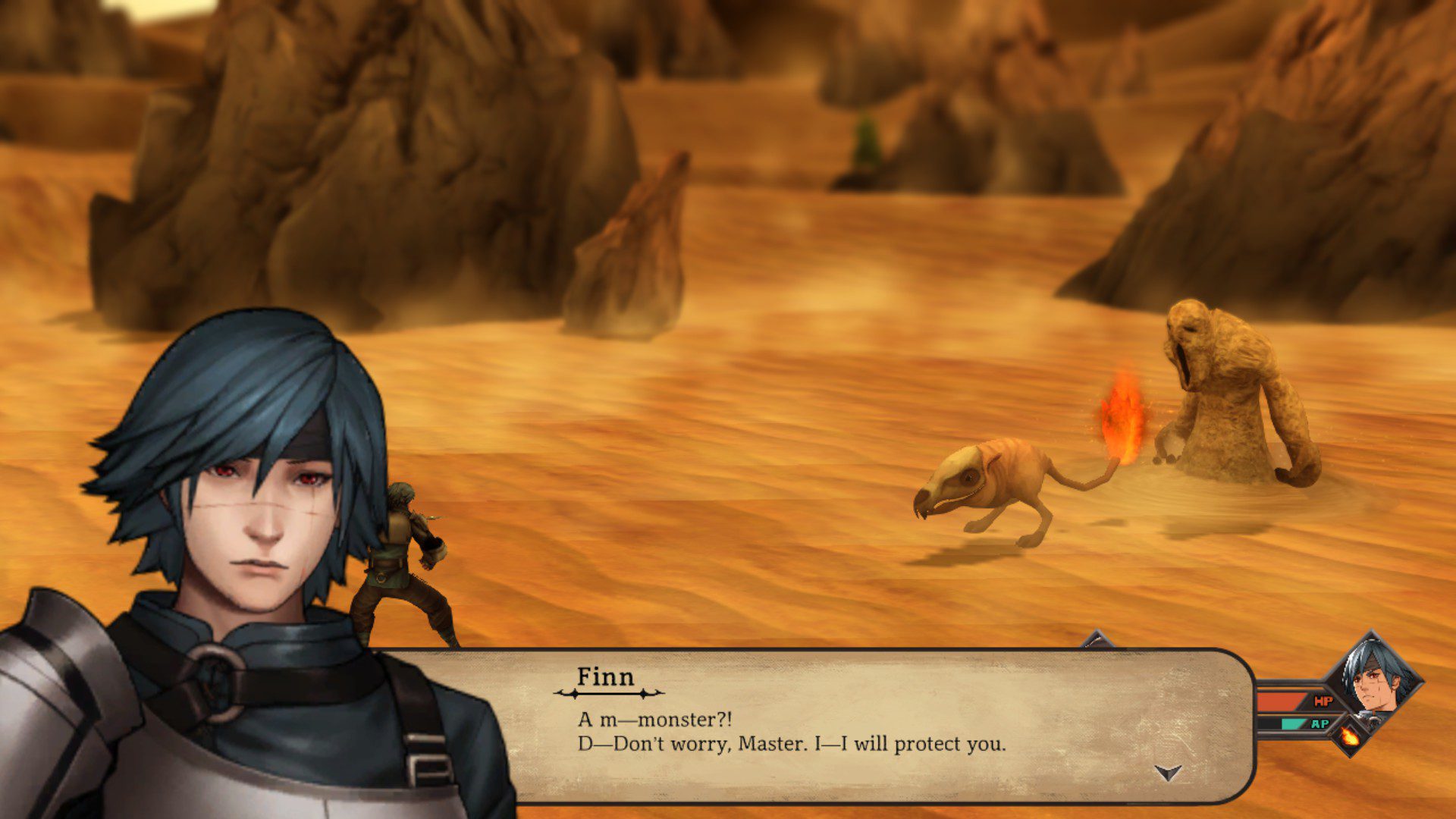
Legrand Legacy plays much like an early PS2-era game. With all the benefits and pitfalls of the era, too. Combat is gonna be the bulk of this so buckle up. Combat has very specific rules to it. Spells, which are for once, free to cast, always go last. Physical attacks are first and can interrupt if they land right (i.e. you attack the enemy’s weapon weakness or get a perfect). Spells allow you to change targeting in important ways, say by column or row.
You can also change it so that your frontline fighters can protect the back line, but that’s sadly of limited use. Bosses, especially, laugh at your attempts to protect the back row. Which means, despite the likelihood that back row characters can exploit a weakness, they will get interrupted.
I have, however, danced around the elephant in the room about as much as I can. In combat, with the exception of item use and a smattering of support spells, everything requires a successful Quicktime Event, with perfects making the action even more potent. Whether it’s dealing damage or protecting yourself from attacks, you need to at least get a good on the event, or you may not deal any damage at all. By default, these are randomized to different face buttons, with random initial placement.
These settings award you more experience points from battle, though why the game starts you with the most difficult version of this system is beyond me. I didn’t successfully complete one until I turned the random buttons off (as well as some other settings, below).
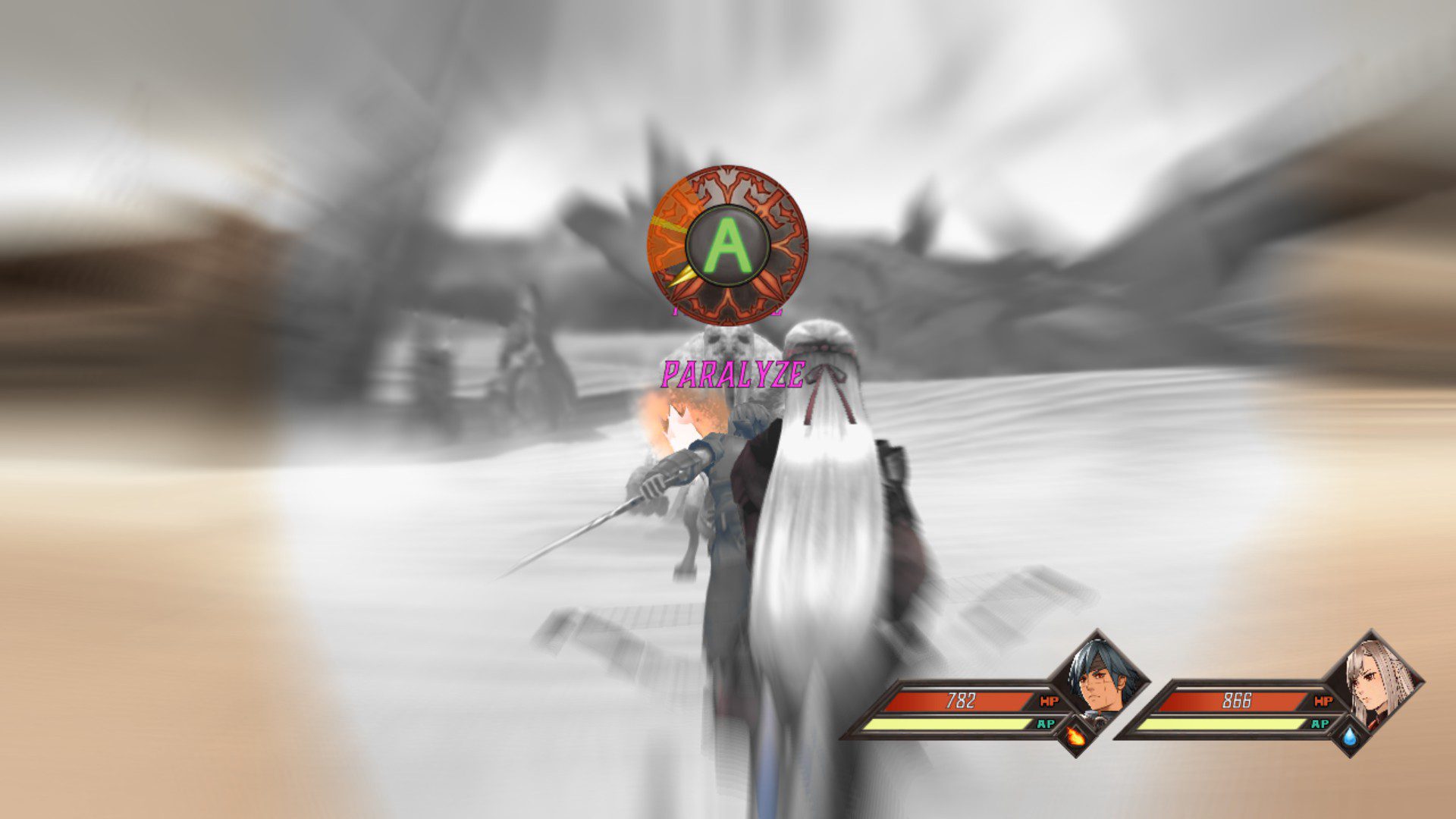
I’ve seen it (unfavorably) compared to Legend of Dragoon and Shadow Hearts. The problem being that in LoD, those button presses were always the same, making memorization valuable. And in Shadow Hearts, you could customize the wheel to a degree, increasing the risk/reward and tooling it to your tastes. This is not even getting into the fact that it’s very hard to get them to land properly; there are several times where I thought my timing was perfect, but the game didn’t agree. Though that may be related to something I’ll talk about in Graphics.
As a final note, enemies are displayed as a floating, shadowy eye on the map. You can choose to initiate, and if you sneak up on them, you’ll get a free turn in battle. It’s not easy to do though, so you might not want to count on it all the time.
I suppose I’ll start by saying what I didn’t in the section above. I pretty much had to turn the game down to potato settings just to get the QTE’s to work in a remotely timely manner. This is less to do with the game rather than the fact that I’m trying to win the Kentucky Derby on a draft horse, so to speak.
The front part of the game is very… not colorful. Granted, it seems to open up a bit later. I certainly didn’t have the time to play that far, as I’d already lost a fair amount of time not being able to play the game at all. But as far as throwbacks go, it’s almost clever to deliberately use muted colors; though it’s certainly not something I preferred from the time. But I figure it worthy of note, in the same way you note when a game has you spend the beginning chapters playing exterminator. Which, thankfully, Legrand Legacy didn’t do.
As a side note, the game runs on pre-rendered backgrounds. Which is rather quaint in a nice way. It does have all of the pitfalls of that decision, though. Perspective doesn’t always match up to your movement quite right on some of them. Which can make navigating traps and enemies difficult.
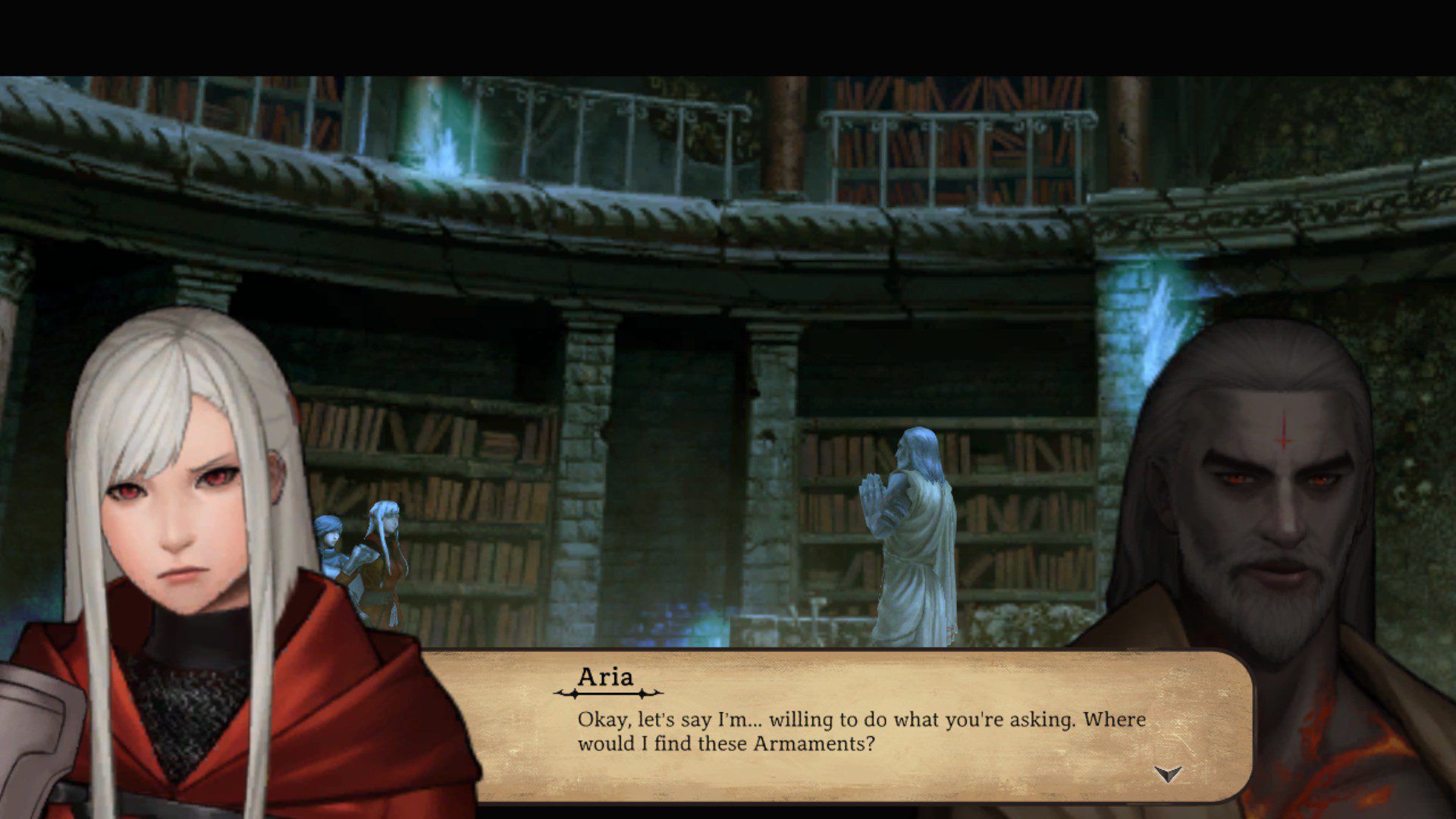
All said, the game looks very good. The modelling is on point, and movements are smooth. For a studio’s first game, it’s quite pretty.
I hate to say this about a game, but the soundtrack and effects leave no impact on me whatsoever. Granted, they’re not bad in the least; if they were, I’d note them. The sound of this game just fades away the second I quit it, like (in my case) a Motoi Sakuraba soundtrack.
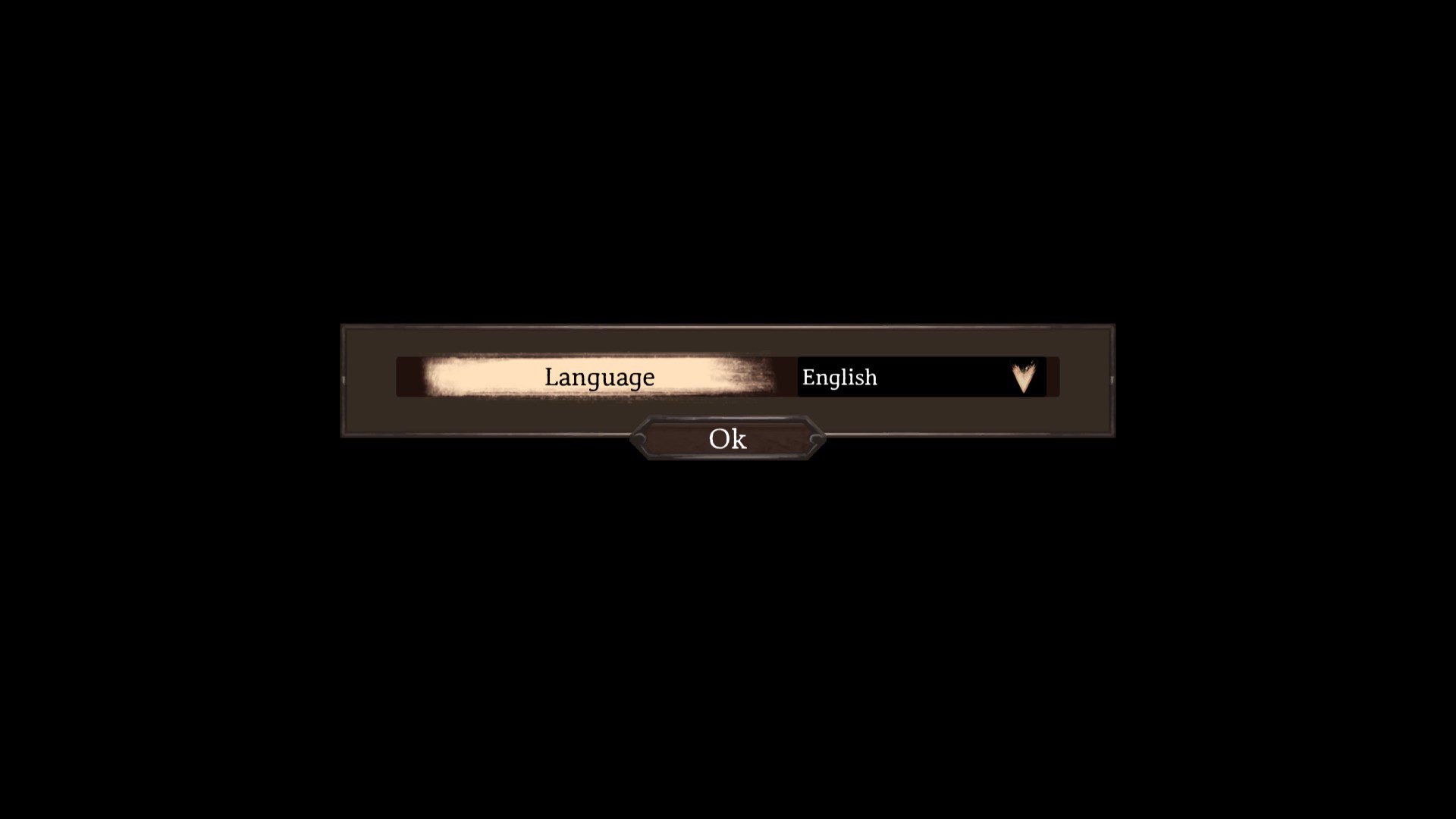
That probably made a number of people very mad just now. But I’ve played several games that man has scored, and I’ll be damned if I could hum a bit of one right now if my life depended on it. Legrand Legacy is much the same in that regard; I couldn’t tell you of any track that stood out if I tried. It all does its job though, which is admirable in its own right.
There was also at least one time where the game crashed for no discernible reason. It wasn’t even doing anything intensive; it was just scrolling some text. Which reminds me that I should really send that in.
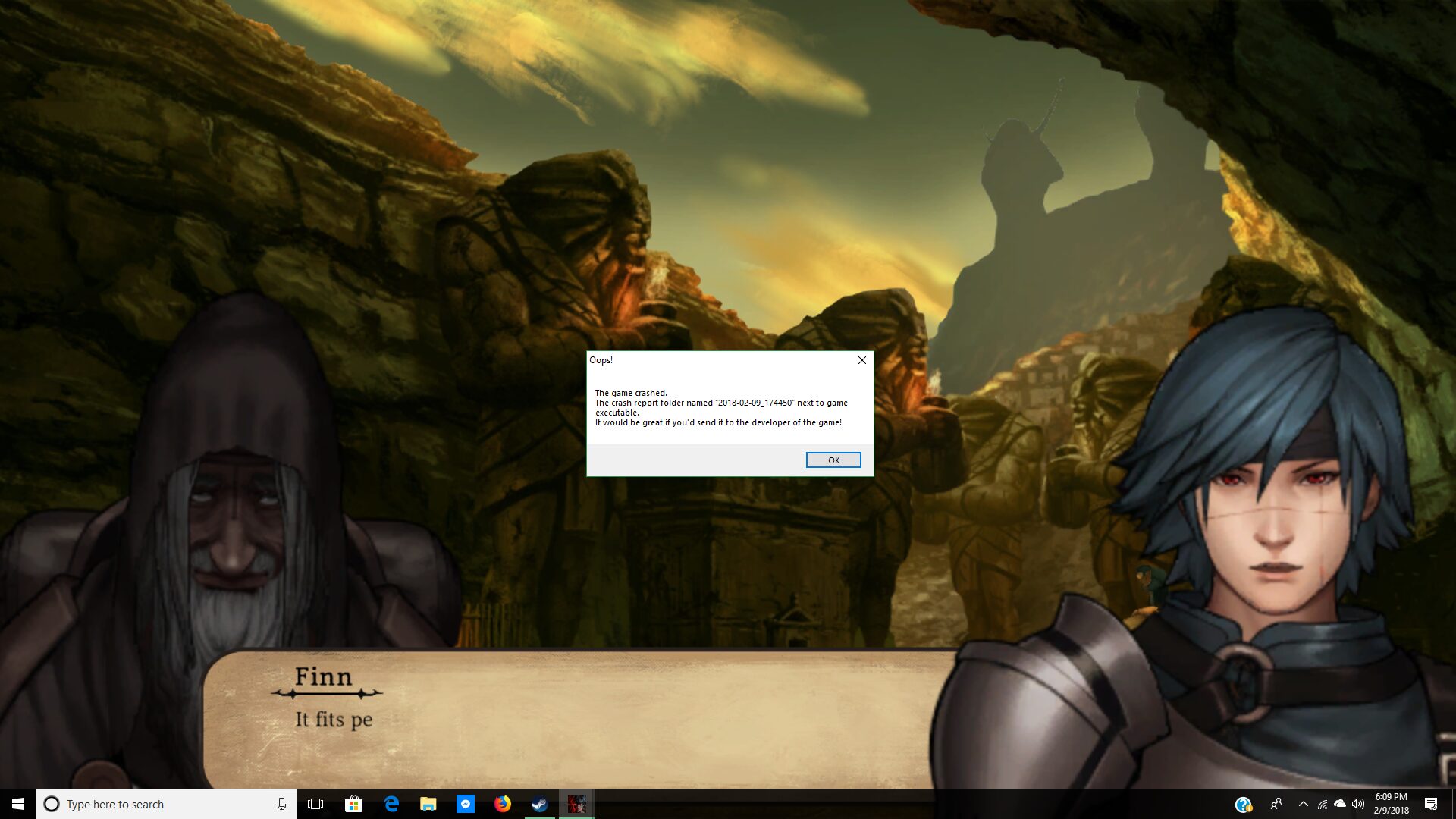
Conclusion
Well, chances are that you can probably guess as to whether or not Legrand Legacy is your game. If you can’t stomach very retro sensibilities in your RPG’s you’ll probably hate it. If you can, though, there’s a chance that you might like it.
I’m far more interested in seeing what the developer does next; they did display some interesting ideas, even if they were hampered a bit. I sort of feel like I’m being far too unkind to the game in each section. But at the same time, the game feels like something of an acquired taste as it is. And even if you do have that taste, it may still not appeal to you.
“If turn-of-the-century RPG’s are your thing, Legrand Legacy might be up your alley. Others might find it a bit too old school.”
Final Score:
3.5/5
*We were provided a copy of this game for review*

